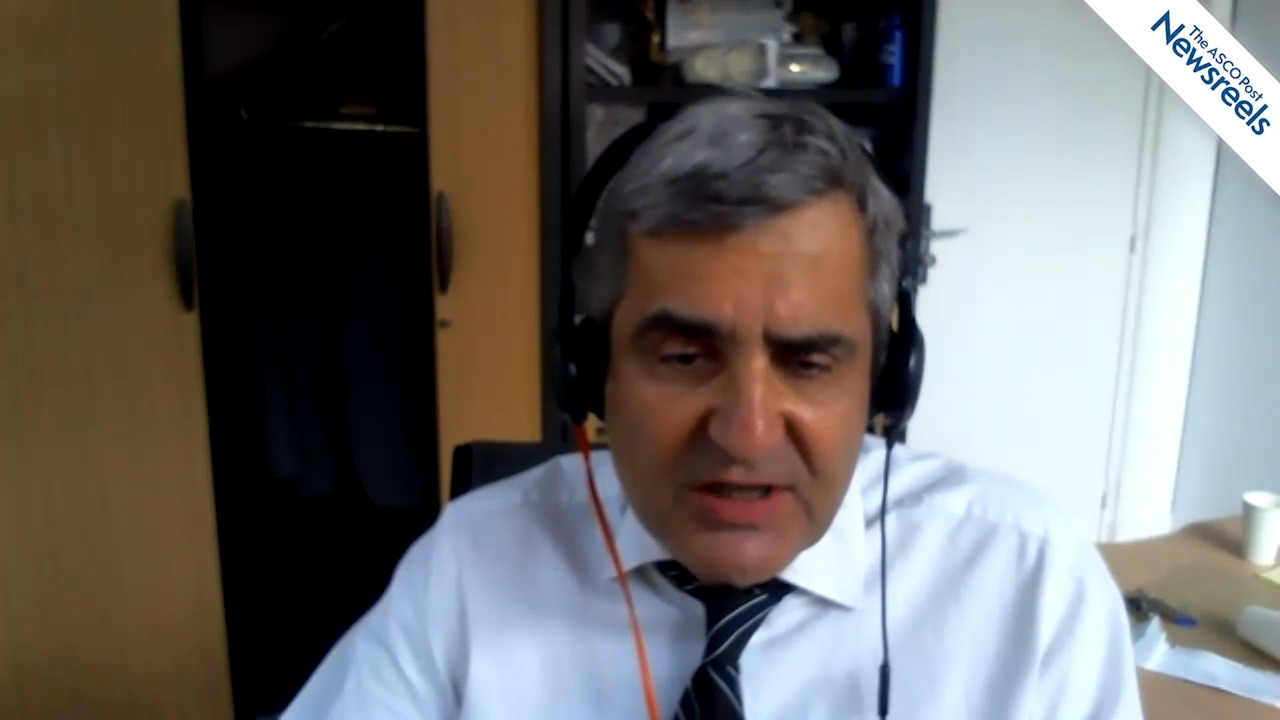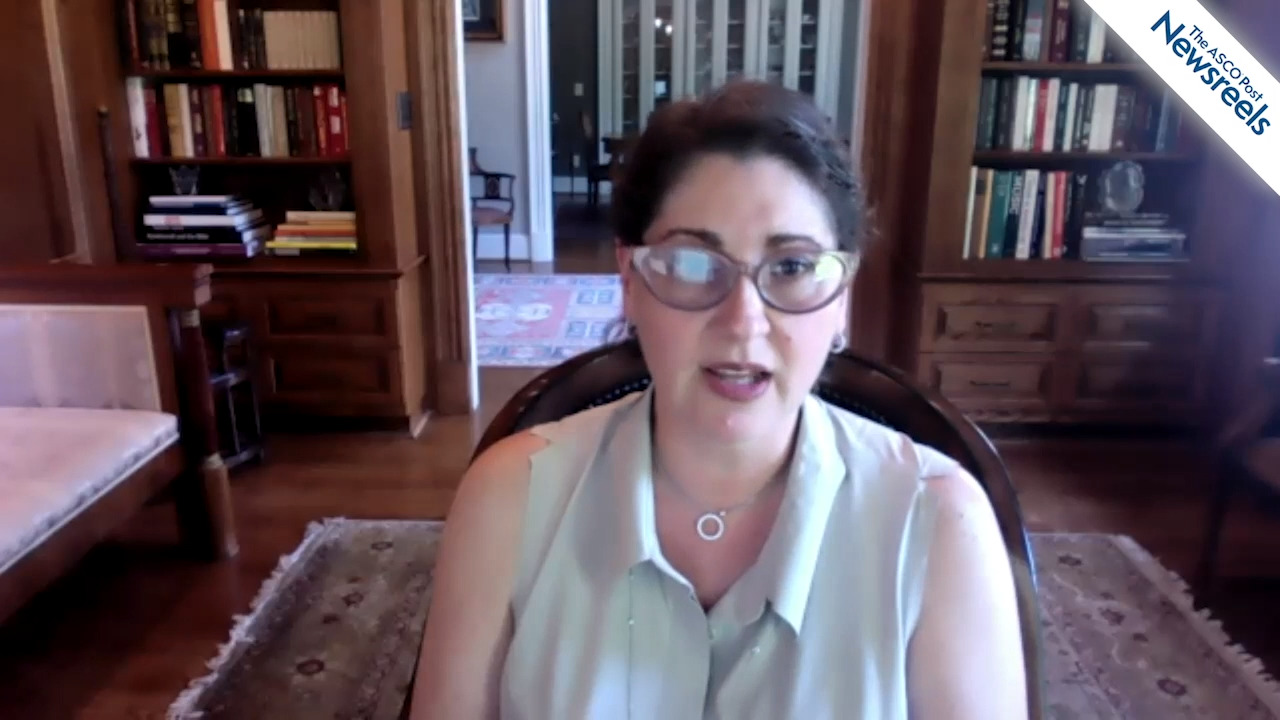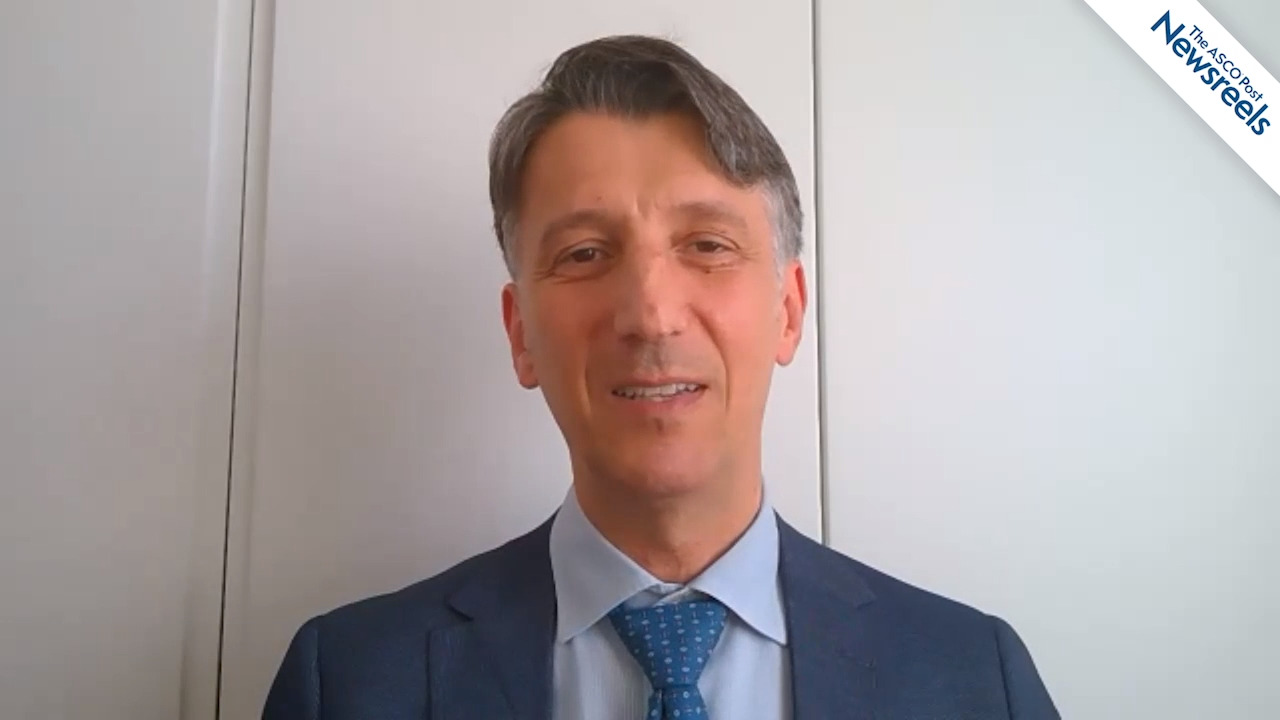Cathy Eng, MD, on Colorectal Cancer: FOLFOXIRI, Cetuximab, and Bevacizumab as First-Line Treatment
2021 ASCO Annual Meeting
Cathy Eng, MD, of Vanderbilt-Ingram Cancer Center, discusses two abstracts from a session she co-chaired: the phase II DEEPER trial, which explored the use of FOLFOXIRI plus cetuximab vs FOLFOXIRI plus bevacizumab as first-line treatment in metastatic colorectal cancer with RAS wild-type tumors; and the phase II FIRE-4.5 study, which investigated FOLFOXIRI plus either bevacizumab or cetuximab as first-line treatment of BRAF V600E–mutant advanced disease (Abstracts 3501 and 3502).
The ASCO Post Staff
Byoung Chul Cho, MD, PhD, of the Yonsei Cancer Center, discusses study results that showed treatment with the EGFR-MET bispecific antibody amivantamab plus the EGFR inhibitor lazertinib yielded responses in 36% of chemotherapy-naive patients with non–small cell lung cancer whose disease progressed on osimertinib. Genetic biomarkers may be able to identify patients most likely to benefit from the combination regimen (Abstract 9006).
The ASCO Post Staff
Jingxuan Zhao, MPH, of the American Cancer Society, discusses study findings that showed worse long-term survival among low-income patients with cancer who live in states that have not expanded Medicaid eligibility (Abstract 6512).
The ASCO Post Staff
Thierry André, MD, of Hôpital Saint-Antoine, discusses final overall survival data for the phase III KEYNOTE-177 study, which confirmed pembrolizumab as a new standard of care for first-line treatment of patients with microsatellite instability–high/mismatch repair–deficient metastatic colorectal cancer (Abstract 3500).
The ASCO Post Staff
Ingrid A. Mayer, MD, of Vanderbilt University Medical Center, discusses phase III results from a trial that showed patients with triple-negative breast cancer who had residual invasive disease after neoadjuvant chemotherapy had lower-than-expected invasive disease–free survival, regardless of study treatment with platinum-based chemotherapy or capecitabine (Abstract 605).
The ASCO Post Staff
Paolo Ghia, MD, PhD, of the Università Vita-Salute San Raffaele, discusses phase II results from the CAPTIVATE study, which examined ibrutinib plus venetoclax as a fixed-duration first-line treatment in patients with chronic lymphocytic leukemia/small lymphocytic lymphoma (Abstract 7501).





